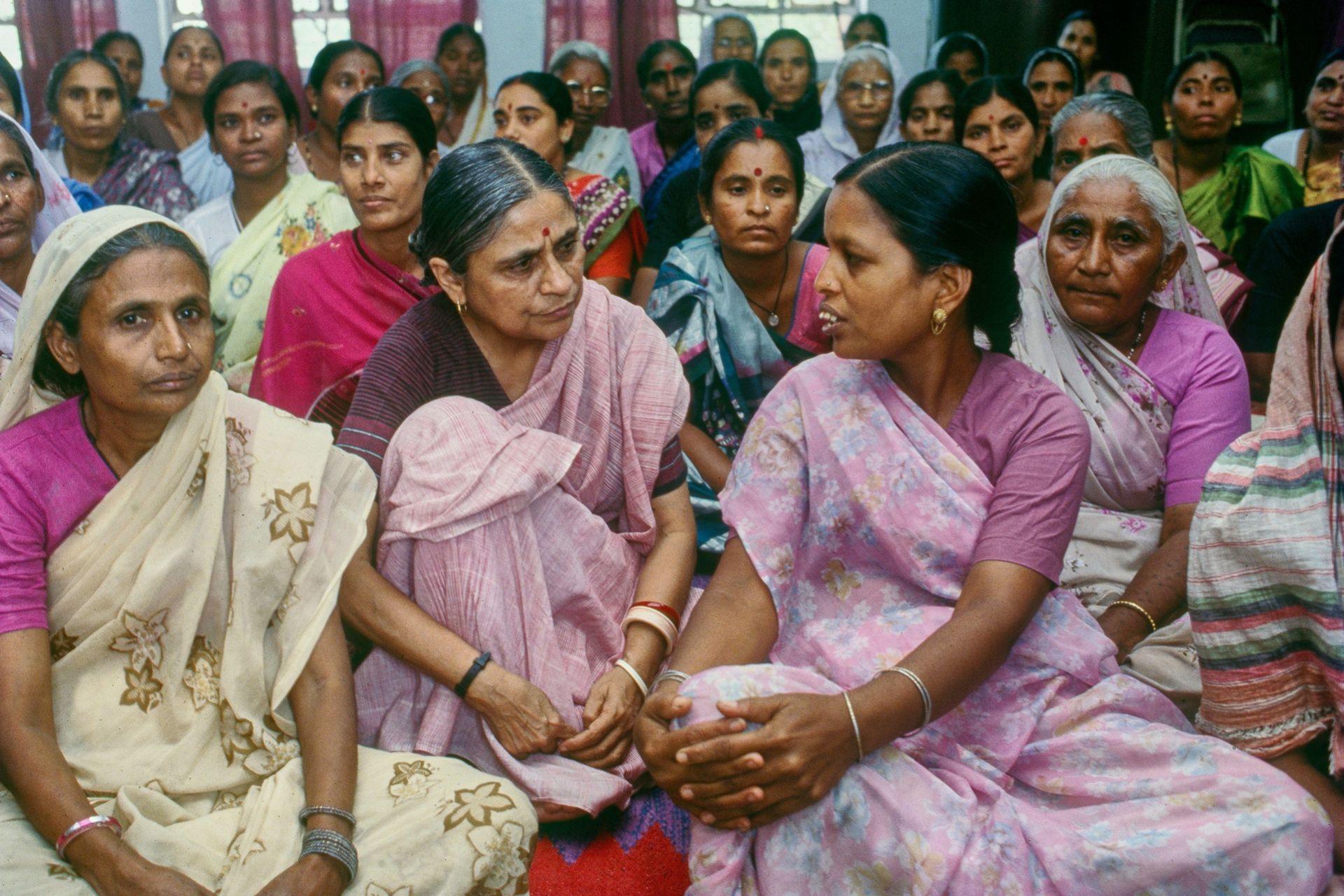It was 1989, and police had come to clear a women’s sit-in. The protesters worked as vendors and Ahmedabad’s municipal corporation wanted them off the street, a move that would jeopardise their livelihoods. But the officers had not reckoned with a petite union leader who argued for two hours — until they finally gave in.
The policemen had come up against India’s “gentle revolutionary”. An activist who championed collective power, Ela Ramesh Bhatt, affectionately called Elaben (ben means sister), died earlier this month. Pioneering financial services for poor women, Bhatt fought tirelessly against poverty, and became a global feminist icon with admirers from Nelson Mandela to Hillary Clinton.
Born to a well-off family in Gujarat in 1933, Bhatt’s early life was steeped in India’s freedom struggle against British colonialism. She attended school and college in Surat, before studying law in regional capital Ahmedabad, dubbed the “Manchester of India” for its textile mills. She later married fellow student leader Ramesh Bhatt.
Bhatt joined the Textile Labour Association’s legal team soon after university and began battling for unionised workers’ rights. At that time, “we were rebuilding the nation, looking to a more just society,” the lawyer recalled in 2010.
In fighting for the union, Bhatt realised most workers were not unionised, and had neither protection from exploitation nor regular salaries. This so-called informal sector, which most female workers belonged to, spanned home-based craftspeople, street vendors and small-scale farmers.

Determined to change this, Bhatt started the Self-Employed Women’s Association (SEWA) in 1972, India’s first working women’s movement. “As individual workers they were invisible, isolated, and totally powerless,” she said in 2017. “By creating the union they laid claim to their status as workers for the first time”.
The first 6,000 members took a decade to recruit. Today SEWA is India’s biggest union — it counts 2.1mn members and provides services from healthcare to training. Bhatt was general secretary for over two decades. SEWA members flocked to Ahmedabad in their thousands for her funeral.
But what Bhatt described as “changing the balance of power in favour of the poor” was not accepted by the rich and powerful, and SEWA met with “constant tension, with big farmers, moneylenders, contractors, big traders, government”. Bhatt also clashed with the male-dominated unions, confronting their refusal to recognise informal workers.
Bhatt knew finance was critical to eradicating poverty. Loan sharks preyed on self-employed workers, without bank accounts or health insurance, whenever they suffered mishaps from crop-ruining storms to injuries. So in 1974, SEWA started a women’s bank.
“Poor women are economically active,” the micro-financing pioneer argued, and “should not be considered unbankable”. Bhatt insisted on putting money in their hands rather than their husbands’. Women were more prudent and productive with money, she contended; SEWA’s loan recovery rates supported her thesis, at well over 90 per cent. She became a founding member of global microfinancing network Women’s World Banking in 1979.
In the mid-1980s, Bhatt had a brief parliamentary foray when she chaired a national commission on self-employed women, forcing the cause into the spotlight. Poverty “is man-made”, said Bhatt years later, “and therefore always a political question.”
But politics was troublesome. In 2005, Gujarat’s state government, led by now prime minister Narendra Modi, alleged financial irregularities in state-funded SEWA work. SEWA denied the allegations, accusing the administration of “harass[ing] and discredit[ing] SEWA”.
Bhatt’s friend Shiv Visvanathan, an academic, remembers her as a formidable intellectual, with deep misgivings about Modi’s government: “she had an ethics,” he said, defining it as “a goodness that can sense evil”.
Bhatt — who served as chancellor of a university founded by Gandhi — embodied Gandhian simplicity, with her severe middle parting and khadi cotton saris, and her modest bungalow where she used her bed as a desk chair. Yet Bhatt was far from austere: she cultivated a love for Indian classical music and could often be found gossiping on the swing bench in her living room.
A SEWA member now “knows that she is important”, Bhatt said in 2010. “She has a name, an address, a bank account number, an insurance policy, a pension plan . . . She is more aware that poverty is not destiny . . . what the women have gained is self-esteem”. Chloe Cornish